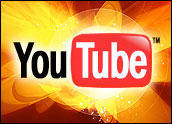
Given that a swarm of presidential candidates in both the Republican and Democratic camps have participated in several formal television debates, many voters may already be feeling election fatigue some 18 months before the big day. That should not stop viewers from tuning in on July 23, however, when eight Democratic presidential candidates will debate once again in South Carolina. The difference? The event will be sponsored by YouTube andCNN — and the questions won’t be fired by sober-faced, polite journalists; they’ll be coming from, well, anybody.
The debate’s tone and tenor will be set by questions submitted by everyday people through YouTube. It will be held at the Citadel in Charleston, S.C., and CNN anchor Anderson Cooper will moderate.
YouTube, of course, has played a role in earlier elections, perhaps most famously when Virginia’s Republican candidate for the U.S. Senate, George Allen, used the word “macaca” when referring to a campaign worker for his Democratic opponent, James Webb, during the campaign. Webb won the election.
It is a safe bet that there will be no “macaca” moments on July 23. By now, politicians are acutely aware of how integral Web 2.0 technologies and communication tools are to their campaign — and how quickly they can be used against them. Indeed, this venture between YouTube and CNN represents the formalization of a role that YouTube, MySpace and other social networking sites assumed in 2006.
“The impact of this partnership could be profound,” Robb Hecht, adjunct marketing professor with the City University of New York (CUNY), told the E-Commerce Times. “In our new age of blogs, wikis, shared video via YouTube, and mashups, bringing Web 2.0 technologies to the political process gives potential constituents a larger role in the presidential candidate-selling process — a much more direct role than MoveOn.org and Meetups did for the last presidential election.”
A Kennedy-Nixon Moment?
Some political pundits believe the formal infusion of Web 2.0 technologies could bring about a sea change in politics — in much the same way the famed Kennedy-Nixon debates of 1960 did. They were the first major presidential debates shown on television, a venue in which a youthful and handsome John Kennedy outshone Richard Nixon, whose face was far less loved by the camera.
The Kennedy-Nixon debates put TV in the forefront, Republican pollster David E. Johnson, CEO of Strategic Vision, told the E-Commerce Times. Web 2.0 technologies played a role in 2004 and 2006.
“Now, though, we are seeing a formalized version where the traditional media is embracing it, and I think this is forerunner to more such debates,” he noted.
Whether the YouTube debate will have such a dramatic impact is itself a matter of debate. “The candidates are well aware of TV and the visual medium,” Albert Maruggi, head of marketing firm Provident Partners and a former press secretary for the Republican National Committee, told the E-Commerce Times.
The Internet Candidate
It’s likely that the possibility that YouTube debates might bump the four Kennedy-Nixon debates from their perch in media history is primarily of interest to pundits and political junkies. However, there is little doubt that the emergence and acceptance of Web 2.0 communication styles in the upcoming presidential campaign will change the business of politics dramatically.
For one thing, it gives candidates that are not front-runners face time with voters.
“Fred Thompson, for instance, is talking about running an Internet-based campaign [for the Republican nomination], shunning the Iowa caucus and the daily politicking that is part of a traditional campaign,” Johnson said.
In earlier years, this strategy would likely have fallen flat; in this election cycle and media environment, Johnson thinks Thompson might pull it off.
“Look at the interested he generated when he responded to Michael Moore’s movie (‘Sicko,’ a documentary on the state of healthcare in the U.S.),” he remarked. “It was posted overnight on all the conservative Web sites.”
The Questioner Takes Center Stage
A more significant, albeit subtle, change that Web 2.0 will introduce affects the role of the questioner. To be sure, presidential candidates, as well as presidents, have held televised “town hall” meetings in which citizens posed questions in the past. Usually, though, the audiences have been packed with supporters not inclined to put their heroes on the spot — indeed, the Bush administration has heightened this gimmick to fine art.
Whether or not the YouTube debate will serve up similar pablum remains to be seen. There is hope that it will not, though, mainly because YouTube has come to signify the Wild West character of Web 2.0 and its disruptive impact on politics.
Then there is the wild card aspect of having ordinary people ask questions. For example, a question about the country’s healthcare situation could be framed by the questioner’s real-life situation involving a seriously ill child who cannot get coverage. Immediately, the debate shifts away from dry policy, and viewers home in on how the candidate connects and communicates with that person.
“That is what is unique about this particular debate,” Maruggi pointed out
From a political communications standpoint, debates are often analyzed by a candidate’s body language, tone, expressions and answers — but rarely is the focus on the questioner as well, said Matt Eventoff, a political communications strategist with PPS Associates/Princeton Public Speaking.
“In the past, the questioner has often played a more passive role. In this medium, there will be a lot more analysis placed on the questioner and his or her tone, expressions, body language and actual question,” he commented.
“The partnering between traditional media (CNN) and new media (YouTube) not only adds even more legitimacy to emerging technologies,” Eventoff observed, “it also, in some ways, validates the importance of more traditional mediums of communication.”



















































